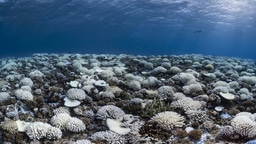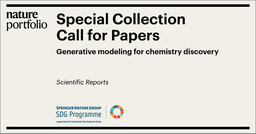Call for papers: Biotech Innovations for a Greener Future
Published in Bioengineering & Biotechnology, Earth & Environment, and Ecology & Evolution
What is this journal about?
Biotechnology for the Environment is a new gold open access journal published under the BMC brand by Springer Nature. As Editor-in-Chief I warmly invite the biotechnology community to submit manuscripts that contribute to environmental management, protection, and sustainability—including applications in agriculture and forestry.
We are particularly interested in original research and reviews in the following focus areas:
- Mycelium-Based Bioremediation – Using fungal mycelium for heavy metal removal, plastic degradation, or wastewater treatment.
- Microbial Electrochemical Technologies – Advances in microbial fuel cells and electrosynthesis for sustainable energy and wastewater treatment.
- Enzymatic and Microbial Upcycling of Plastic Waste – Novel enzymes and microbial pathways for plastic degradation and valorization.
- Synthetic Biology for Bioremediation – Engineering microorganisms to detect and degrade environmental pollutants.
- Biotechnological Approaches to Combat Climate Change – Carbon sequestration, methane mitigation, and bio-based CO₂ capture strategies.
- Next-Generation Biofertilizers and Biostimulants – Microbial consortia and genetically engineered microbes for sustainable agriculture.
- Environmental Applications of AI in Biotechnology – AI-driven microbial engineering, predictive modeling for bioprocesses, and automation in bioremediation.
- Biotechnological Solutions for Emerging Contaminants – Degradation of pharmaceuticals, PFAS, and microplastics using microbes and enzymes.
Why are these research areas important?
These topics align with the United Nations Sustainable Development Goals, particularly those related to clean water and sanitation, sustainable cities, life below water, and life on land.
We aim to spotlight bold, next-generation biotechnological breakthroughs that drive environmental sustainability—think microbes and enzymes tackling pollution, transforming waste, and fighting climate change. By weaving in synthetic biology and AI, we’ll unlock smarter, faster solutions for bioremediation, clean energy, and resilient agriculture.
Article Processing Charge Waivers Available
To support authors, we are pleased to offer full APC waivers for articles submitted by December 31, 2025, subject to acceptance following peer review. Waivers must be requested prior to submission. Please contact Editor-in-Chief Evangelos Topakas to discuss this opportunity as early as possible.
We look forward to your contributions to this exciting and impactful field.
Who is involved?
Biotechnology for the Environment’s editorial board is comprised of a number of experts across the biotechnology spectrum. Our editors work closely together to ensure the quality of our published papers and consistency in author experience.
How can I submit my paper?
Please follow the submission guidelines process here after deciding to submit.





Please sign in or register for FREE
If you are a registered user on Research Communities by Springer Nature, please sign in